Interview: UNRAVELLED Playwright/Actor Jake Broder Creating Good Times To Mask The Bad Times We're Having
Jake Broder's UNRAVELLED virtually premieres February 25, 2021.
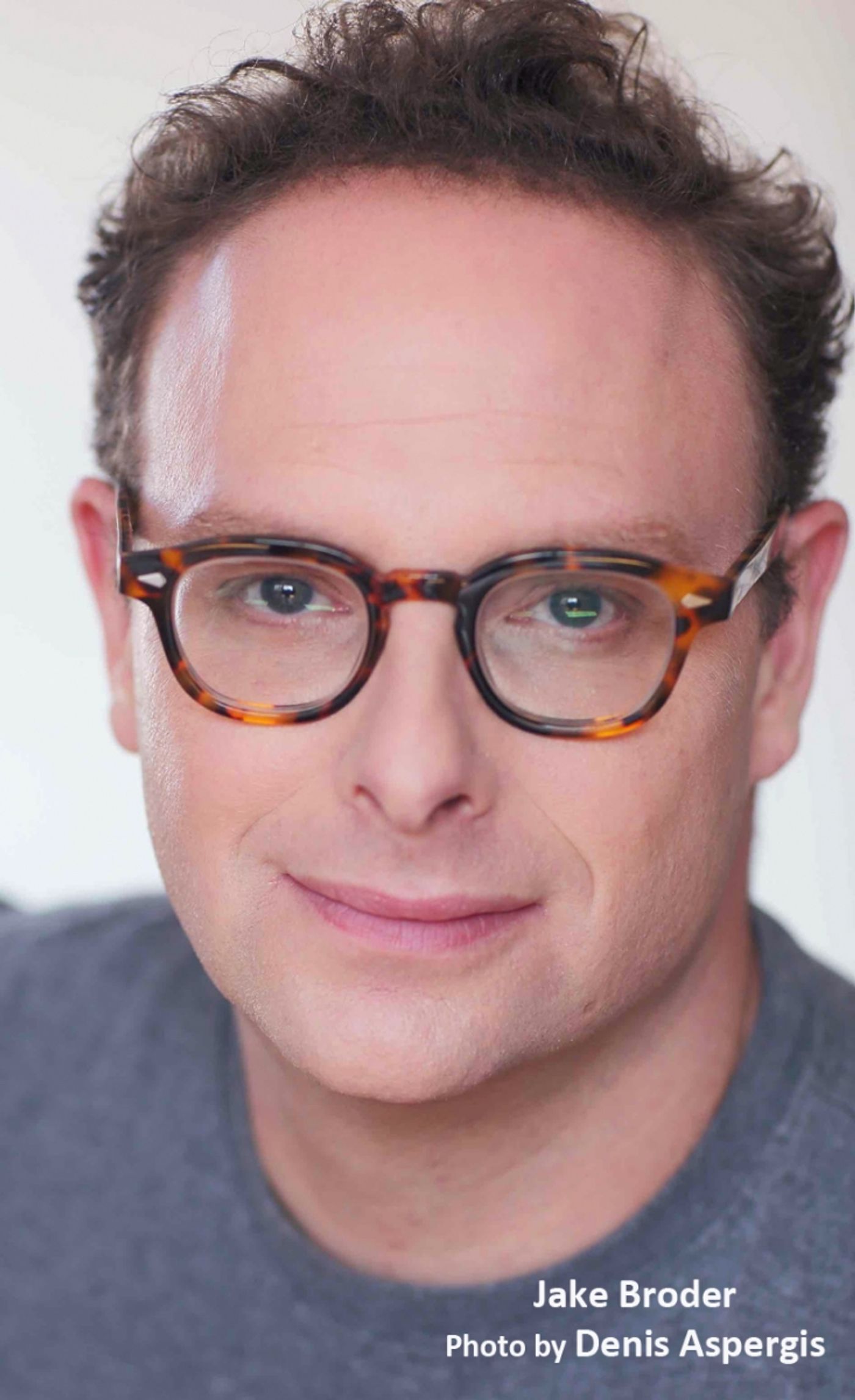
Jake Broder's UNRAVELLED virtually premieres February 25, 2021. Jake explores the not-oft-told, surprising, complicated connection between genius, art and medical science, told via the correlation between modern Canadian artist Dr. Anne Adams (1940-2007) and French composer Maurice Ravel (1875-1937).
Jake found some time between his multitasking of juggling his multiple writing projects to answer a few of my queries.
Thank you for taking the time for this interview, Jake!
How would you describe UNRAVELLED in a three-line pitch?
Here's the language from the site: Based on the fascinating real life connection between the modern day scientist Dr. Anne Adams and world famous composer Maurice Ravel, UNRAVELLED is an essential new play about love, art, and who we are on the most profound level.
But, if I just met you and wanted to turn you on the story, I would say, "Anne Adams was an outstanding scientist in a seemingly happy marriage, and also a mediocre painter. Then, one day she started listening to 'Bolero' by Maurice Ravel. For the next six years she left science and her husband behind as she dove deep into a new style of painting. And she was brilliant. But then she started to lose the ability to speak, she picked up knives from the wrong end. Something was very wrong. It turns out this blossom of creativity was also the first symptom of a disease, a form of dementia. The mystery of this deepens when she discovers that her source of inspiration, Maurice Ravel, had the same disease, and composed 'Bolero' at the same age (53). Throughout this incredible journey, her husband, Robert has to make sense of the transformation of the woman he loves."
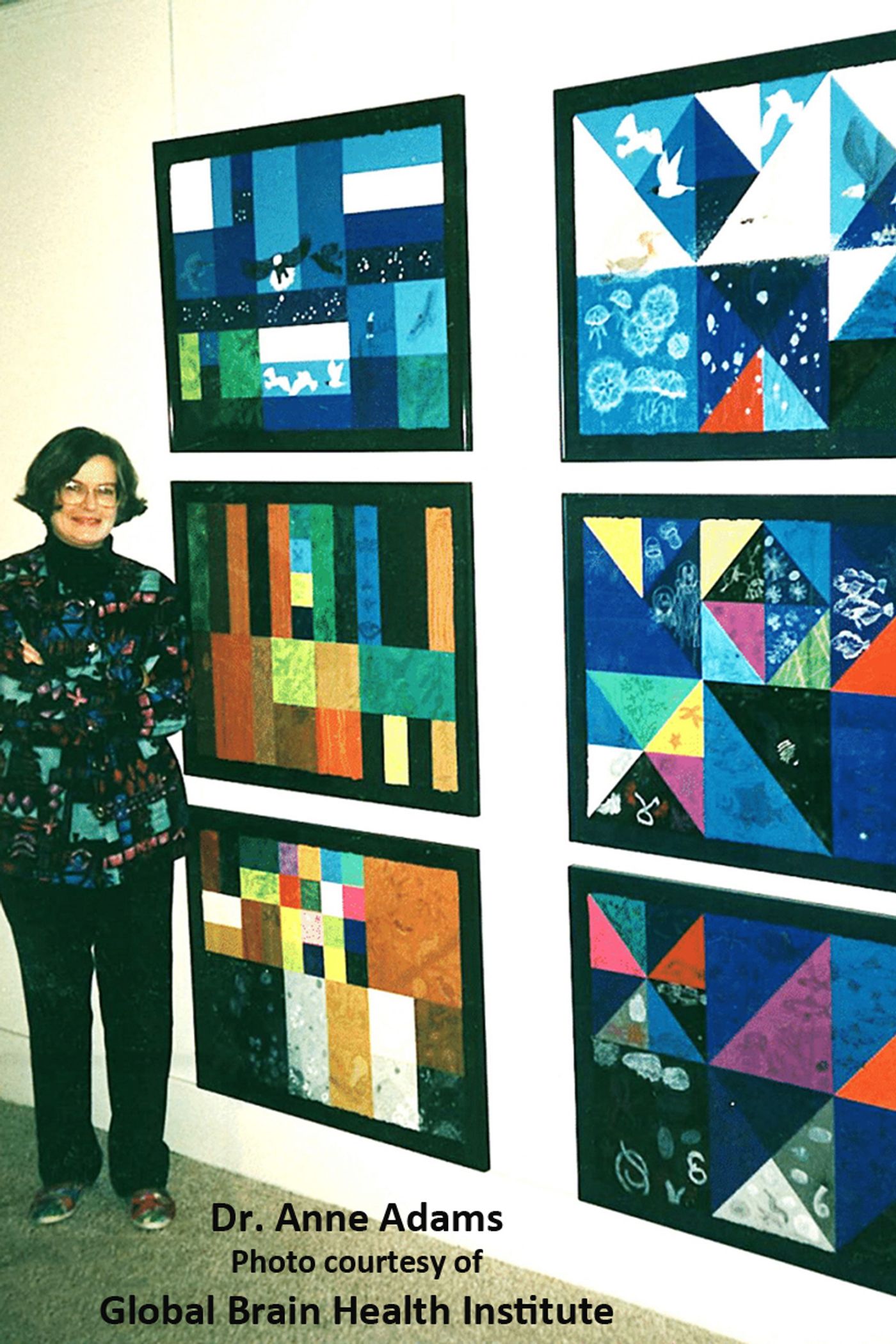 I was listening to a piece on Radiolab, and had one of those 'driveway moments.' I couldn't get out of the car until it was over, and by that time, I had already decided that I was going to work on this story. Also, there is a family member who might be looking down the barrel of something similar. Finally, the relationship between Primary Progressive Aphasia, Dementia, Creativity and ADD (attention deficit disorder) is something that is close to my own heart (having ADD and thinking that there are profound connections between all these things).
I was listening to a piece on Radiolab, and had one of those 'driveway moments.' I couldn't get out of the car until it was over, and by that time, I had already decided that I was going to work on this story. Also, there is a family member who might be looking down the barrel of something similar. Finally, the relationship between Primary Progressive Aphasia, Dementia, Creativity and ADD (attention deficit disorder) is something that is close to my own heart (having ADD and thinking that there are profound connections between all these things).There's also another factor, which I've learned throughout the research for this play, but has become a major driver not just for this story, but for my thinking in general. We are living in a unique moment in history. In the grand scheme of things, we are at the beginning of the study of the brain. We've been studying the heart for a long time, and we know how to fix it. We can even make an artificial one. But with brains, we are at the beginning of knowing, relatively speaking. Although we can look at a brain in a person while they are alive, with an MRI, we can't really see it or experience it while it is inside a living person.
Also, we are at a crossroads in history. For the first time, our bodies are starting to live longer than our brains. We are going to start to experience all kinds of issues with brain health that we never have before, on a massive scale, because of advances in medical science which allow us to live long enough to have those problems. They are going to become ubiquitous. Having the language, emotionally, to deal with this is going to be important, for everyone with a brain, or who loves someone who has one. Which, in my experience, is most people. This play is an attempt to open up a dialogue about this, using an extraordinary case, with very ordinary human emotions.
Primary Progressive Aphasia is a disease where the tissue of the front of the brain deteriorates, which makes organizing thoughts and using words hard, and then impossible. Imagine the way we think like a city, with very busy roads. When language is being used, or made, it puts stoplights on a lot of other roads. But when these roads are stopped, other roads open, like making music or thinking in pictures.What sparked your interest in becoming a Hellman Visiting Artist at UCSF's Memory and Aging Center?
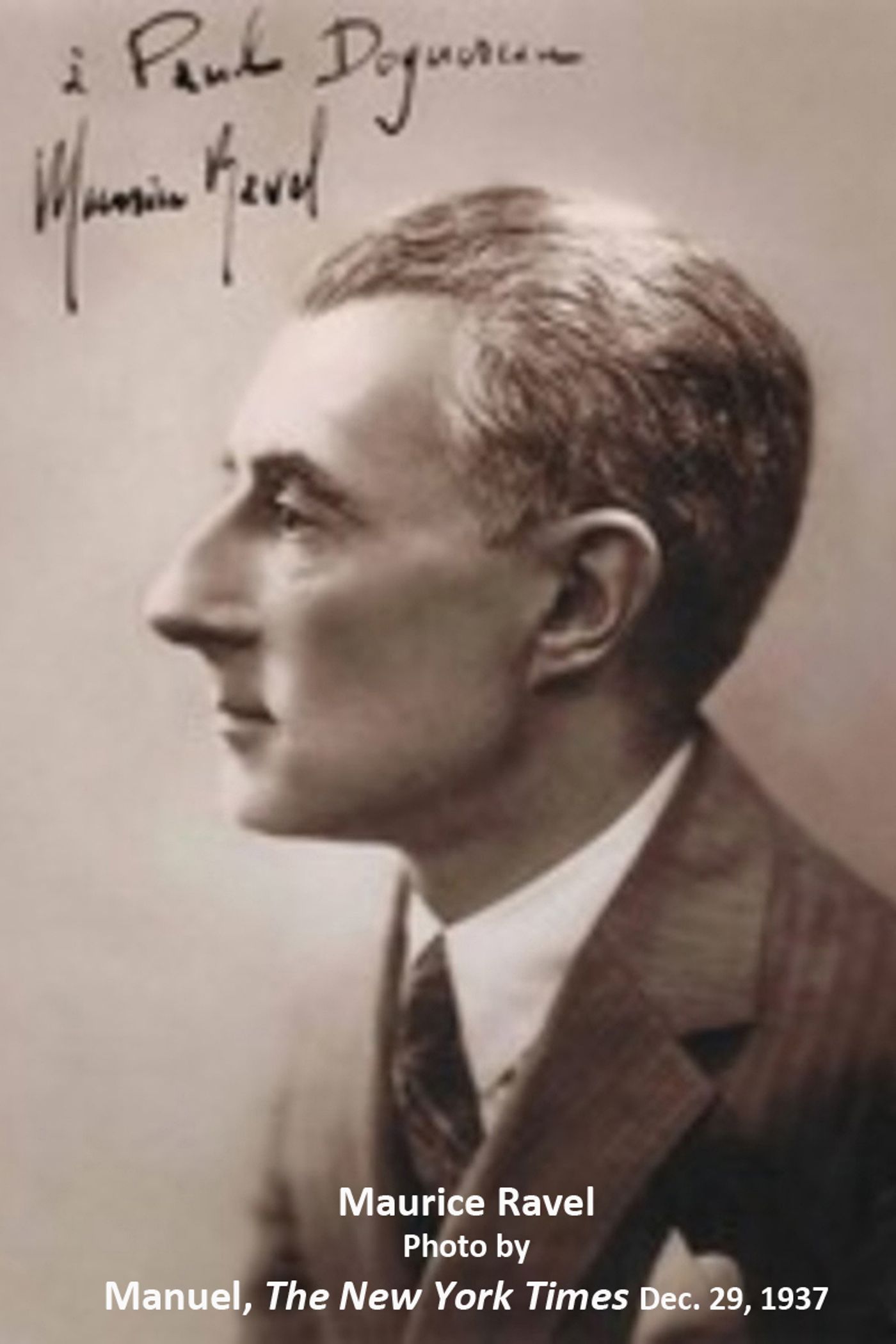 When I started working on this story, all the research pointed to Dr. Bruce Miller. He treated Anne Adams. He also is the world's foremost expert in FTD (Fronto Temporal Dementia, of which PPA is one variant). I wrote him a fan letter, and to my surprise, he responded. He then asked me whether I was the Jake Broder from Silicon Valley, a show which he and his wife take a lot of pleasure in watching. I said, 'Yes.' We struck up a conversation about Anne's story, about the science behind it and about creativity. After giving me a lot of material to digest (which I did, but took a while), I followed up with more questions. He invited me to apply to be the Hellman Visiting artist. The people at the MAC at UCSF, who are mostly part of the GBHI, are an extraordinary community of people who are devoted to the understanding, treatment, cure and care for people with FTD. Through many interviews with all kinds of staff and patients there, I developed tremendous respect and reverence for what they do.
You have scheduled two live seminars to complement the streaming of UNRAVELLED. Was UNRAVELLED's sponsor Global Brain Health Institute instrumental in arranging this educational element?
When I started working on this story, all the research pointed to Dr. Bruce Miller. He treated Anne Adams. He also is the world's foremost expert in FTD (Fronto Temporal Dementia, of which PPA is one variant). I wrote him a fan letter, and to my surprise, he responded. He then asked me whether I was the Jake Broder from Silicon Valley, a show which he and his wife take a lot of pleasure in watching. I said, 'Yes.' We struck up a conversation about Anne's story, about the science behind it and about creativity. After giving me a lot of material to digest (which I did, but took a while), I followed up with more questions. He invited me to apply to be the Hellman Visiting artist. The people at the MAC at UCSF, who are mostly part of the GBHI, are an extraordinary community of people who are devoted to the understanding, treatment, cure and care for people with FTD. Through many interviews with all kinds of staff and patients there, I developed tremendous respect and reverence for what they do.
You have scheduled two live seminars to complement the streaming of UNRAVELLED. Was UNRAVELLED's sponsor Global Brain Health Institute instrumental in arranging this educational element?Absolutely. This was part of the joy of this, being able to get Dr. Bruce and Dr. Bill Seeley to share with the audience about what the case means. They are brilliant thinkers and able to communicate to anyone what this case means, and it is a really special thing to have them together to share their response to this play and speak about the case which inspired it.
Also, it's tremendously exciting to have the GBHI fellows, who are people interested in this subject from all over the world, creating both a dance of Ravel's 'Bolero,' and also a film of the response to the play by some people in the U.K. who living with dementia. Have you worked with any of UNRAVELLED's cast or creatives before?
I'm afraid so. Some, quite a bit. Most, actually. Anne is played by my wife, Lucy Davenport. She hosey'd this part a long time ago (which, frankly, I was delighted about). She called it. So, in a way, I suppose I wrote this with her skill set and nature in mind.
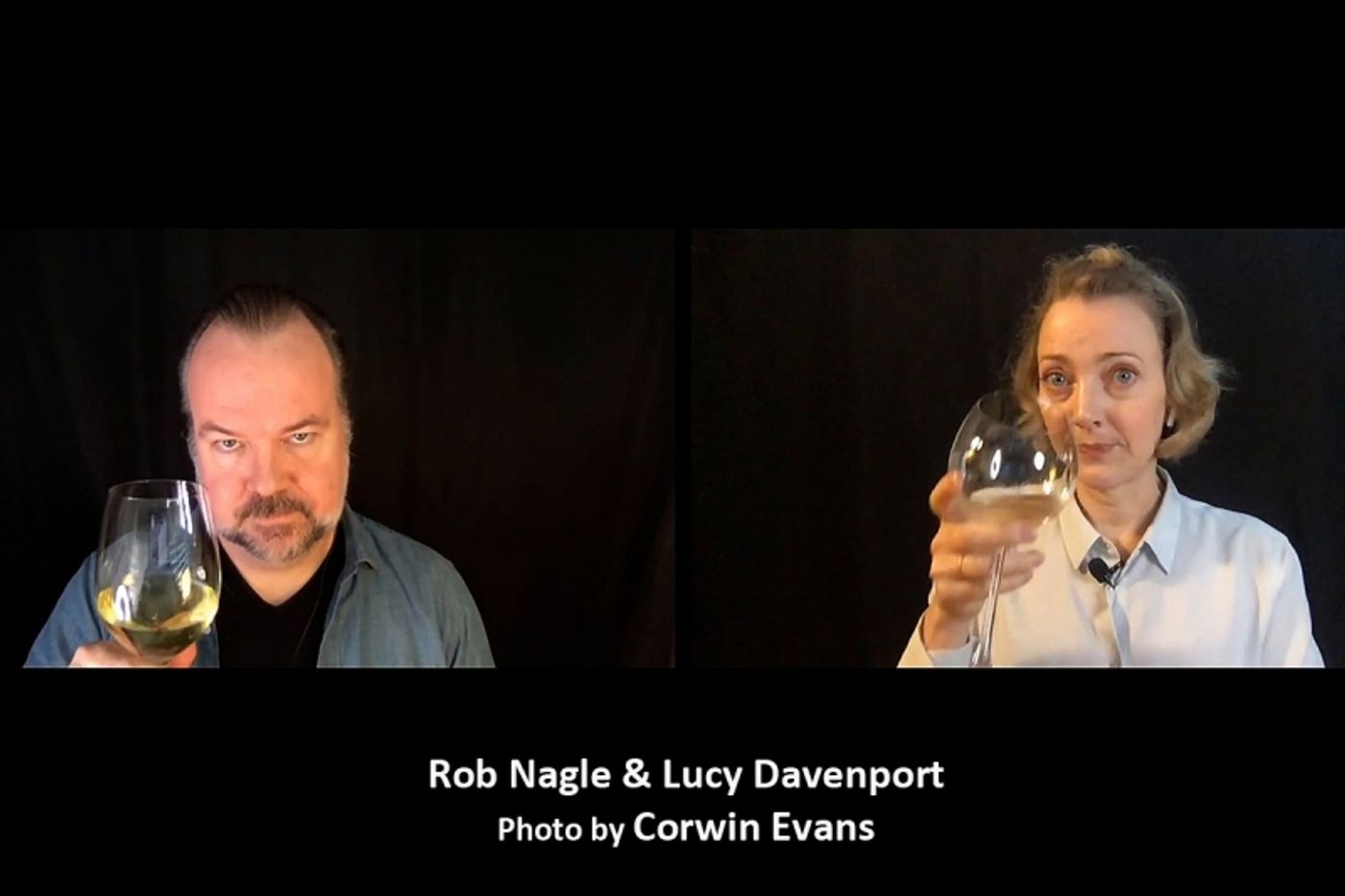 Conor (Duffy), who plays Ravel, is an actor who I have been in shows with before, and recently became a writing partner on MAX & WILLY'S LAST LAUGH, a new musical about the Holocaust.
Conor (Duffy), who plays Ravel, is an actor who I have been in shows with before, and recently became a writing partner on MAX & WILLY'S LAST LAUGH, a new musical about the Holocaust.Rob Nagle has been an actor in versions of OUR AMERICAN HAMLET before, and is someone who supported and nurtured some of the first versions of that play at Antaeus, where he was a co-artistic director.
Leo was slated to play Edwin Booth in OUR AMERICAN HAMLET. We were in rehearsals when the pandemic hit. I certainly hope that we can pick up that work when we get back to live theater.
Mike Lanahan has been in everything I have written since LOUIS & KEELY. He is a consummate pro, and he is a pleasure to have in any cast for what he brings both to rehearsal and to the process at large.
Nike Doukas, who is married to Leo, was a new person to me. Lucy, my wife, has a profoundly good instinct about people, and she told me early on, after seeing Nike's direction of RED INK and a few conversations with her, that I should present UNRAVELLED to her. I make it a habit to listen to Lucy when she says such things, and she was right yet again. Nike now feels like part of the artistic family, and I hope that we get to do more productions of UNRAVELLED together, as well as OUR AMERICAN HAMLET in 2021/22.
I have to say that since the pandemic, between OUR AMERICAN HAMLET, MAX & WILLY'S LAST LAUGH, and UNRAVELLED, we have created a little community of 'Pandemic Players' who have worked on versions of all three of these things, and I am thankful that we have been able to come together during this challenging time. I think we might take this work into the real world together once this pandemic is over. Anyway, I profoundly hope so. I have pipe dreams of a rep company doing these three productions with the same group of people.
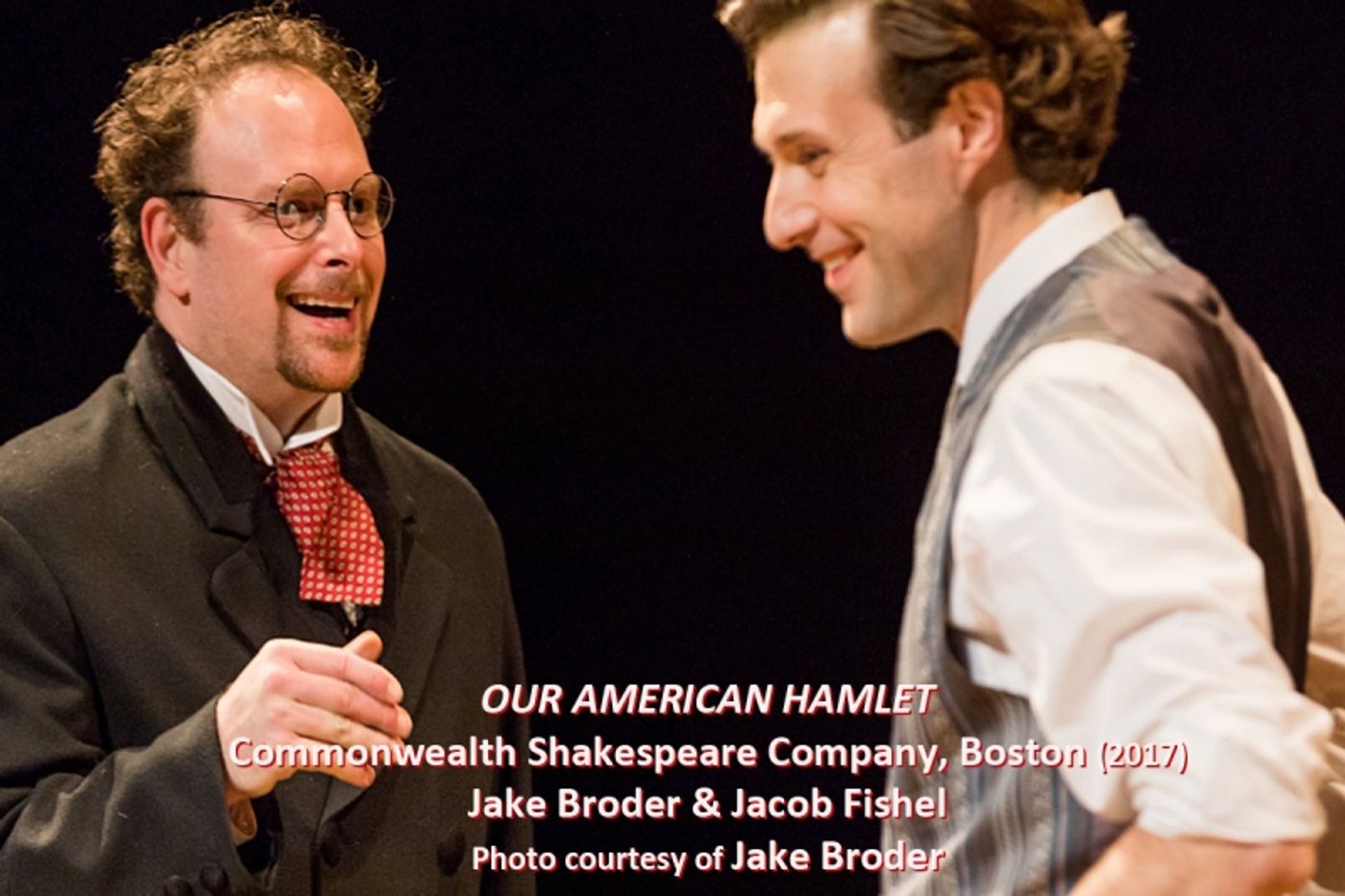 Would you describe the rehearsal and taping process of UNRAVELLED during these socially-distanced times?
Would you describe the rehearsal and taping process of UNRAVELLED during these socially-distanced times?That is a whole subject in and of itself.
One of the good things about working over Zoom with people who know each other, is that there is a shorthand already. One needs some personal experience to draw from.
Then again, a lot of these people were working together for the first time, and I must say, rehearsal was very brave and exacting. That's how I would describe it. There's no fat in rehearsing online. So, it's shorter and more intense.
Also, there is a film element, where the whole performance is largely captured in close up.
Additionally, you might not see it in the final product, but the amount of effort it took to make the connection between the actors feel right, was immense. Every little eyeline, every motion and bit of framing had to be carefully worked out to a degree that you would associate with serious film work.
It felt like everyone was having to do their own coverage, and every scene was played like that. Hard for them, but I feel they (the actors) really rose above the challenge and found a connection with each other. I believed them. So, I hope that you will too, when you see them.
Nike ran a very tight ship and safe space, so by the time we got to shooting, it was feeling pretty organic, from where I was watching. The plays you've written cross a variety of subjects. What is the light bulb moment when you realize you want to delve into a topic and elaborate into two acts?
That's a tough question. To be honest, it's kind of a holy moment, that.
There's tremendous pressure, especially in this town, to repeat yourself. To do something that worked last time. So much of this business is built on fear. One of the things I am most proud of is the difference between my works. Although I have probably paid a price for that, because it is hard to pigeonhole the work.
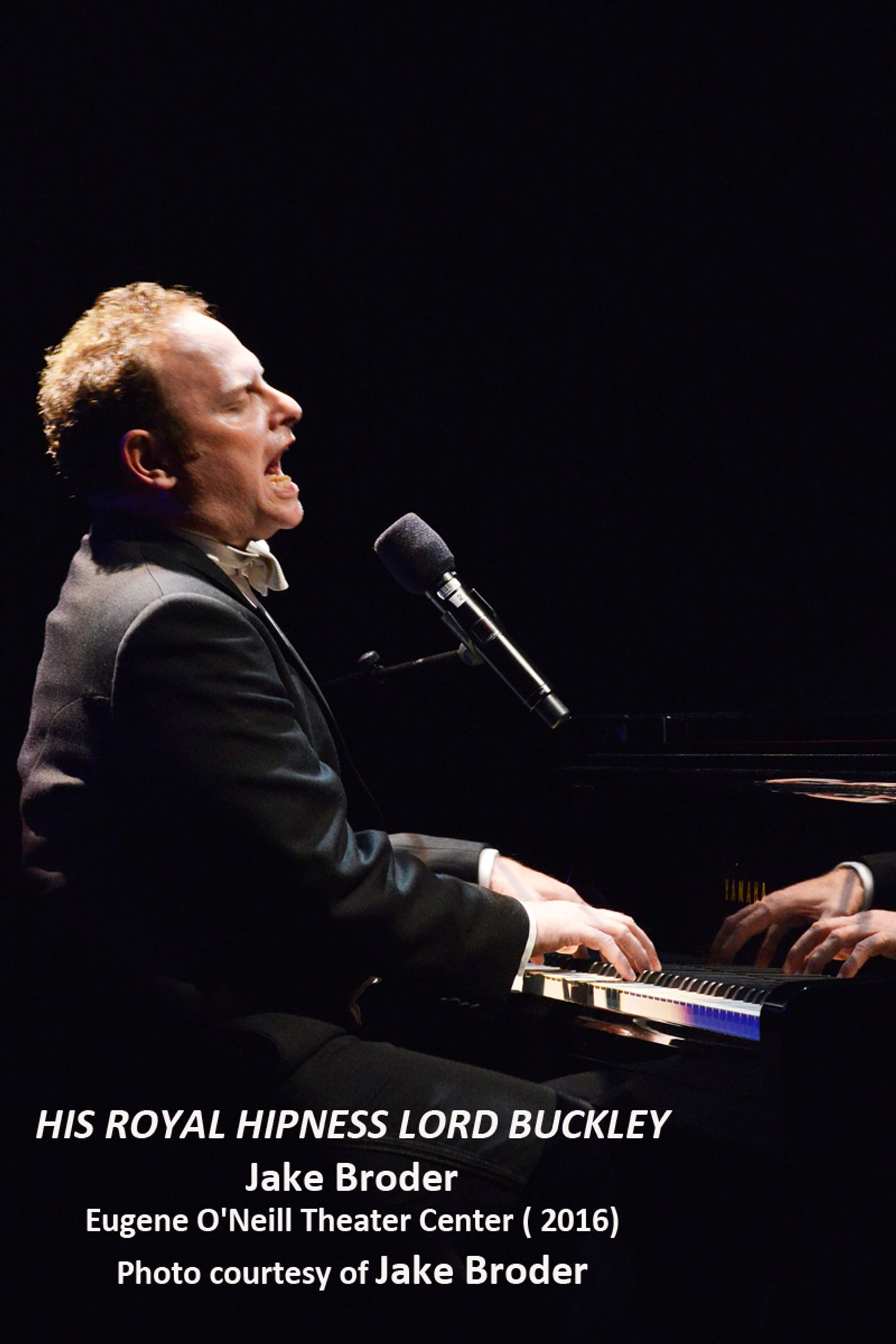 Oh, and two acts? One act, please. I have a profound allergy to making people wait, or wasting their time, mostly because I can't stand it myself. I like to make my work as short as possible. I think there's a magic in something which is under 90 minutes.
Oh, and two acts? One act, please. I have a profound allergy to making people wait, or wasting their time, mostly because I can't stand it myself. I like to make my work as short as possible. I think there's a magic in something which is under 90 minutes.A variety of subjects. Yes. I suppose that's true. However, I feel like I'm usually writing about the same thing. Which is about trying to make an audience experience that feeling of wonder, or joy, or sorrow, or something that hit me about a story. To uncover something that hasn't been shared with the world yet, or has been overlooked. Sometimes I think there are treasure troves inside the discarded bits of history. Whether it's Dizzy Gillespie's run for the presidency in 1963, to the real cause of Lincoln's murder 100 years earlier, or the forgotten performances of two stars during WWII, or the comedy of Lord Buckley in the '40s, or Anne Adams and Maurice Ravel almost a century apart, there are pieces of majesty inside all of their stories, which we don't know, and would make all our lives richer for the knowing.
What appeals to me is something ineffable. I can't really explain it. Something just grabs me and takes hold and I have to tell the story. I think it might have something to do with there being an unsolved mystery inside a story. That's true of UNRAVELLED. That's true of MAX & WILLY and OUR AMERICAN HAMLET as well. In LOUIS & KEELY AT THE SAHARA, you co-wrote and originated the role of Louis. But when you only do either or, which gives you more gratification - acting or writing? Or directing?
They are just different. That's like saying, what do you like to eat more, steak or ice cream? God willing, there's a place for both...
Seriously though, I love acting because I am being the story for the audience, and I enjoy being where the rubber meets the road in terms of making that transfer. It's a gratifying experience.
I also love writing because I have a view of the whole story. And can shape it and have others live inside it.
It is a fascinating experience doing both, because when a story is composed and then you can be inside too, sometimes, you get to bring the insights you learn from playing the character into the story itself. That was true with LOUIS & KEELY, and other projects too, Like Max, in MAX & WILLY. I feel like an old fashioned storyteller, around a fancy campfire. Which is what we're really all after.
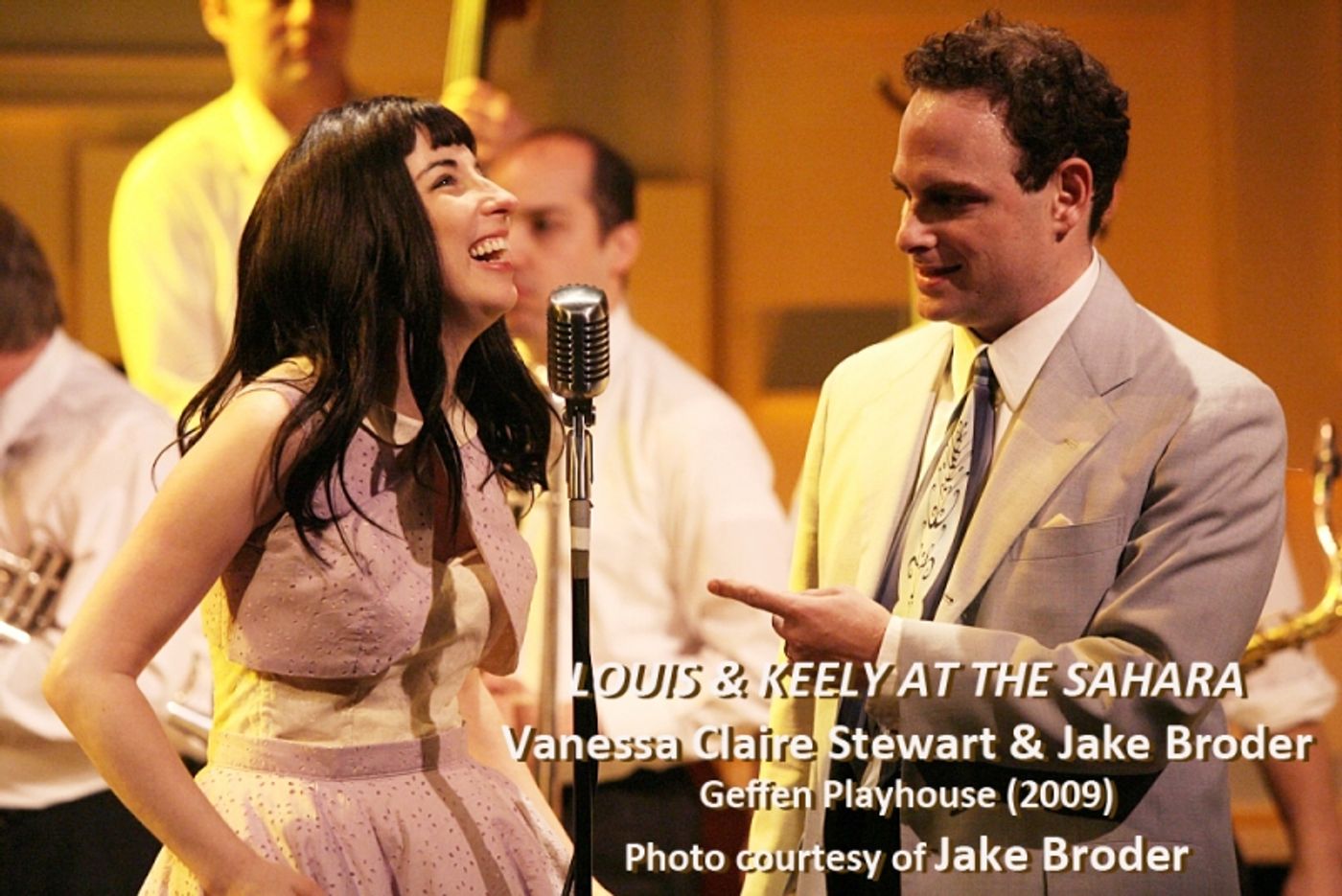 That said, doing a show where I just write it leaves me free to really focus on the fine tuning and balancing during production, where I can shape my intent with as much clarity as possible on a moment-to-moment basis, through the feedback loop of a director interpreting and actors living the material. It's a dialogue with them all the way, until the show has an audience, and then it's a dialogue that happens with the audience.
That said, doing a show where I just write it leaves me free to really focus on the fine tuning and balancing during production, where I can shape my intent with as much clarity as possible on a moment-to-moment basis, through the feedback loop of a director interpreting and actors living the material. It's a dialogue with them all the way, until the show has an audience, and then it's a dialogue that happens with the audience.
Again, you are asking questions that would take a small memoir to answer properly. Let me try and give you an anecdote that exemplifies how I feel about that.
I was performing in AMADEUS, directed by Sir Peter Hall. We were at the Old Vic in London. When we were there, the audiences were aware it was a story, and there were comparisons to the original production in '79-'80 with Scofield and Simon Callow. It was about the story, and how it fit into the tradition of the theater, of which we were now a part.
Then, we took the show to Los Angeles. We played the Ahmanson, and had to wear microphones. This was an anathema. It felt like admitting defeat. We trained for years for voices to be able to carry a room, and be relaxed doing so. The training was the prose version of being an opera singer. At the Old Vic, which has over 2K seats, the auditorium is arranged in a horseshoe, so that when you stand slightly center, down left, there's a hotspot where you can almost whisper and the whole house can hear you. The acoustics of a room, filled with people, is the thing. Playing that. So, when we were given mics, it was like the show was being controlled by someone else. That the tech was standing between us and the audience. However, what was truly the case was that the audio engineers are expert at what they do, and create a beautiful mix so that the audience can appreciate all the nuances of the work. So, it turns out microphones are not to be feared.
But the character of the Los Angeles audience, and where the laughs came, were very different. If you know the story, you know it leans heavily into the ideas of where art comes from, whether it's a gift from God, or more cynical. The L.A. audiences identified very deeply with Salieri, the mediocre, cruel, world weary cynic, who wanted fame, and killed the artist he found in his midst. The show-biz nature of that thought really resonated with the L.A. audiences.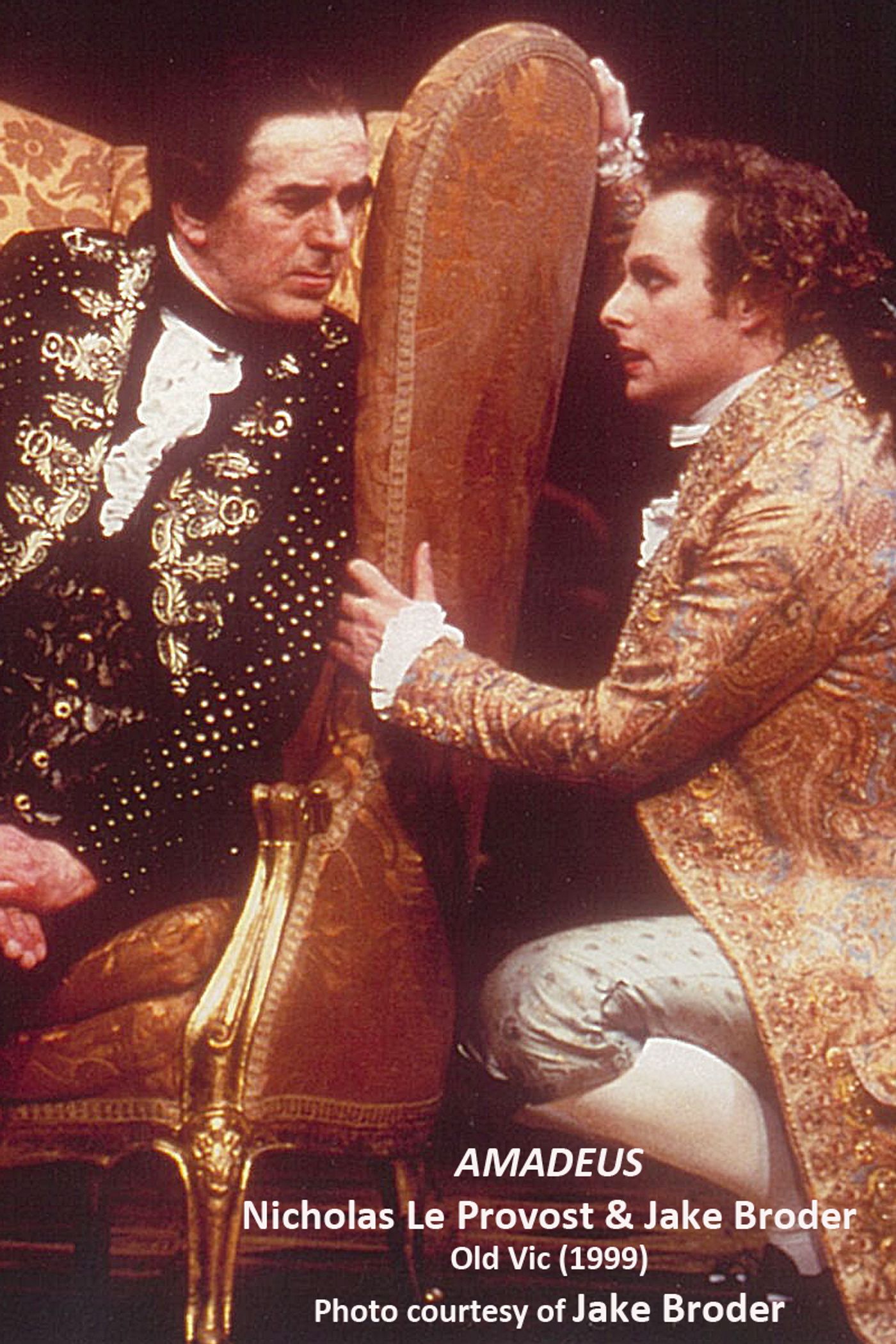 Then we went to New York and played the Music Box on 45th. We were there for about a year. The laughs and mood of the show changed again, completely. Everyone was a misunderstood Mozart. The tragedy of the creature who couldn't fit in the world, whose beauty was unappreciated, that was what was brought out to the foreground, not by us, but by the audience.
Then we went to New York and played the Music Box on 45th. We were there for about a year. The laughs and mood of the show changed again, completely. Everyone was a misunderstood Mozart. The tragedy of the creature who couldn't fit in the world, whose beauty was unappreciated, that was what was brought out to the foreground, not by us, but by the audience.
All of which is to say, you can say the same thing in three different places and people will hear three different things.
Working in different countries has taught me a basic thing which is this: There are things about you which are genuinely you, and those are few and far between. Mostly, we are products of where we are, and who we're with, and influenced greatly by what is around us. What we are told. What is done. Getting past all that, into the very basic things that both connect us to everyone and also make us completely unique, that's hard, but also the necessary place.
It was 1991, and I had just come to New York after being at New England Conservatory the year before. I needed a sax teacher (alto) and got hooked up through the network of players and teachers from NEC. Lee had an amazing apartment, and I went up there for a weekly lesson, where mostly we'd work on standards. I would play the melody and make a variation, thinking I was clever, and he would hit me. "Play the damn thing straight," he'd say, and literally beat me if I screwed around at all. He was a genius. He was able to be so subtle, so delicate with his interpretations of songs, it was always straight down the line, but you always knew it was him. There wasn't a lot of chit chat in these lessons, it was straight playing, where I would just stand and hit whatever he called, and he would just destroy everything. This lasted about six months. Then, he started to open up with stories and be encouraging about changes I would make, and one time, I played 'My Foolish Heart' to him, and he smiled and nodded.
Now, I never play straight. My substitutions have substitutions. I'm like, the Mandelbrot set of melodic sax players, man. Dig that. Do you still play informally? Formally?
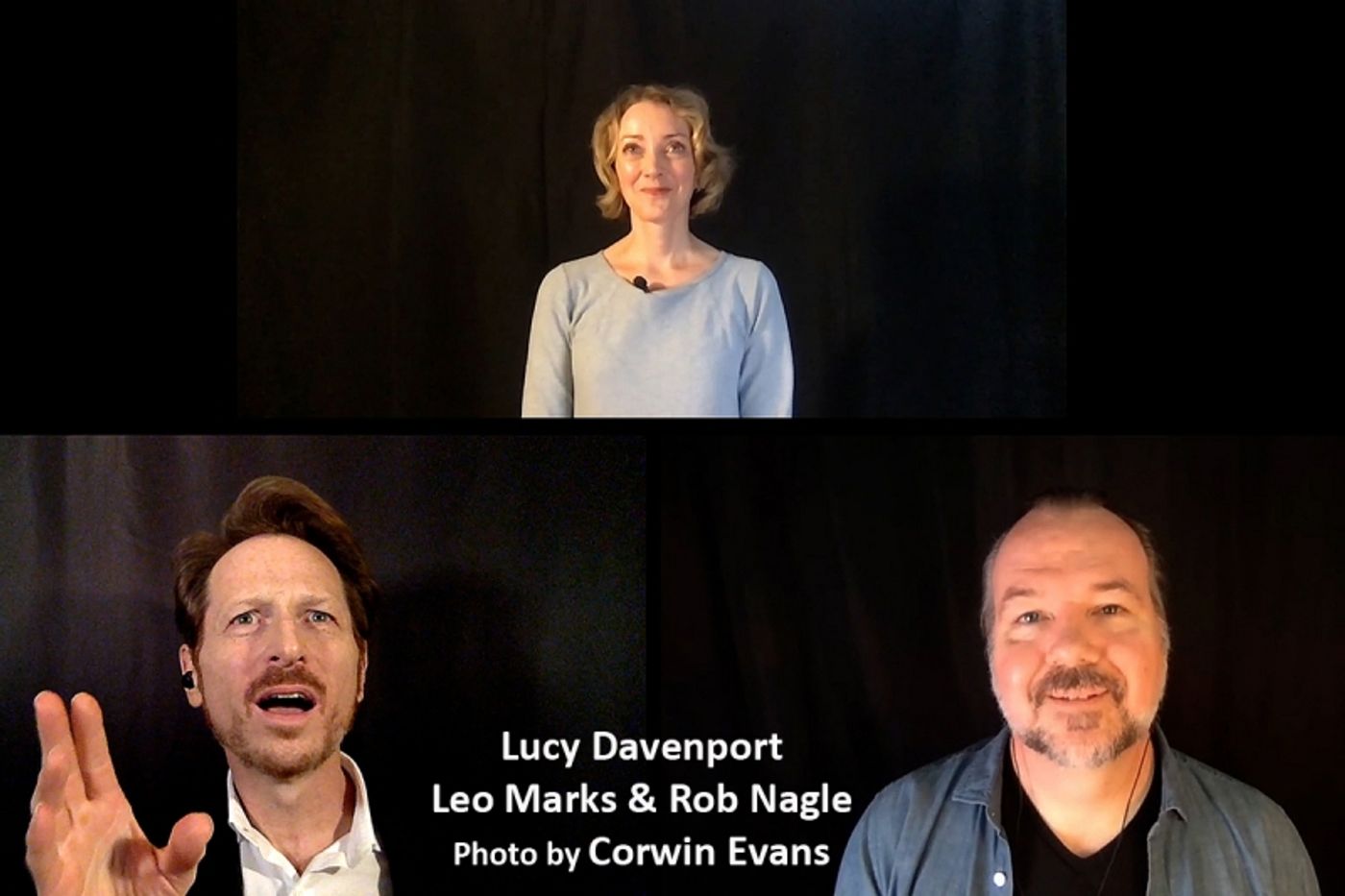 I'm afraid I do. Throughout all the musicals I've done (I seem to favor musicals about music, so that they aren't stop and sings, but endogenic musicals, where the songs are inside the story itself. I've collected quite a cadre of musicians to work with, so there have been different kinds of bands for different occasions, but the most favorite thing has been an album, which I made for my kids.
I'm afraid I do. Throughout all the musicals I've done (I seem to favor musicals about music, so that they aren't stop and sings, but endogenic musicals, where the songs are inside the story itself. I've collected quite a cadre of musicians to work with, so there have been different kinds of bands for different occasions, but the most favorite thing has been an album, which I made for my kids.Lucy went to the UK with the kids for the summer a couple of years ago, and I had to stay here for a shoot, and then figured it was too much to make the trip for just a few days. So I was here without them for a few weeks. So I decided to make a surprise for the kids for when they got back. I took a lot of their songs, from the kids' albums that they would play, endlessly... and reworked them and had some fun. We took about ten tracks and recorded them with some pretty crazy arrangements, very different styles, from Hard Bop versions of 'Elmo's Song,' to Thrash versions of 'Caillou,' Prince doing 'Green Eggs & Ham,' and U2 doing the 'ABCs.' It's called "I'm Not Tired." It was done being mastered by the time the kids got back, and it cracked them up. My first and only kids' album. For grownups, actually. What is tentatively planned for Jake Broder for the rest of 2021? MAX & WILLY'S LAST LAUGH? TYPEWRITER DAYS? Your sci-fi series you developed from four Black Hole Sun novels?
Hopefully in 21/22 will be MAX & WILLY'S LAST LAUGH, which is the story of Max Ehrlich and Willy Rosen and the amazing cabaret they created at the Westerbork Transit camp in 1942. They had to perform something funny every week, or they would be sent off to Auschwitz by the Nazis. Conor Duffy found this story, and we've been working on it together for a couple of years, and the motivation to do it has to do with two things. First, we are at a moment in history where the last survivors of the Holocaust are about leave us. So, the eyewitnesses will be gone. However, the story cannot be gone. How do we make the transition, which will be true for the rest of time, into a place where this is now something that is passed down? It is a grave, terrible and great responsibility we have right now, to make sure that we find a way to tell the tale of that event in a way that can prevent its reoccurrence.
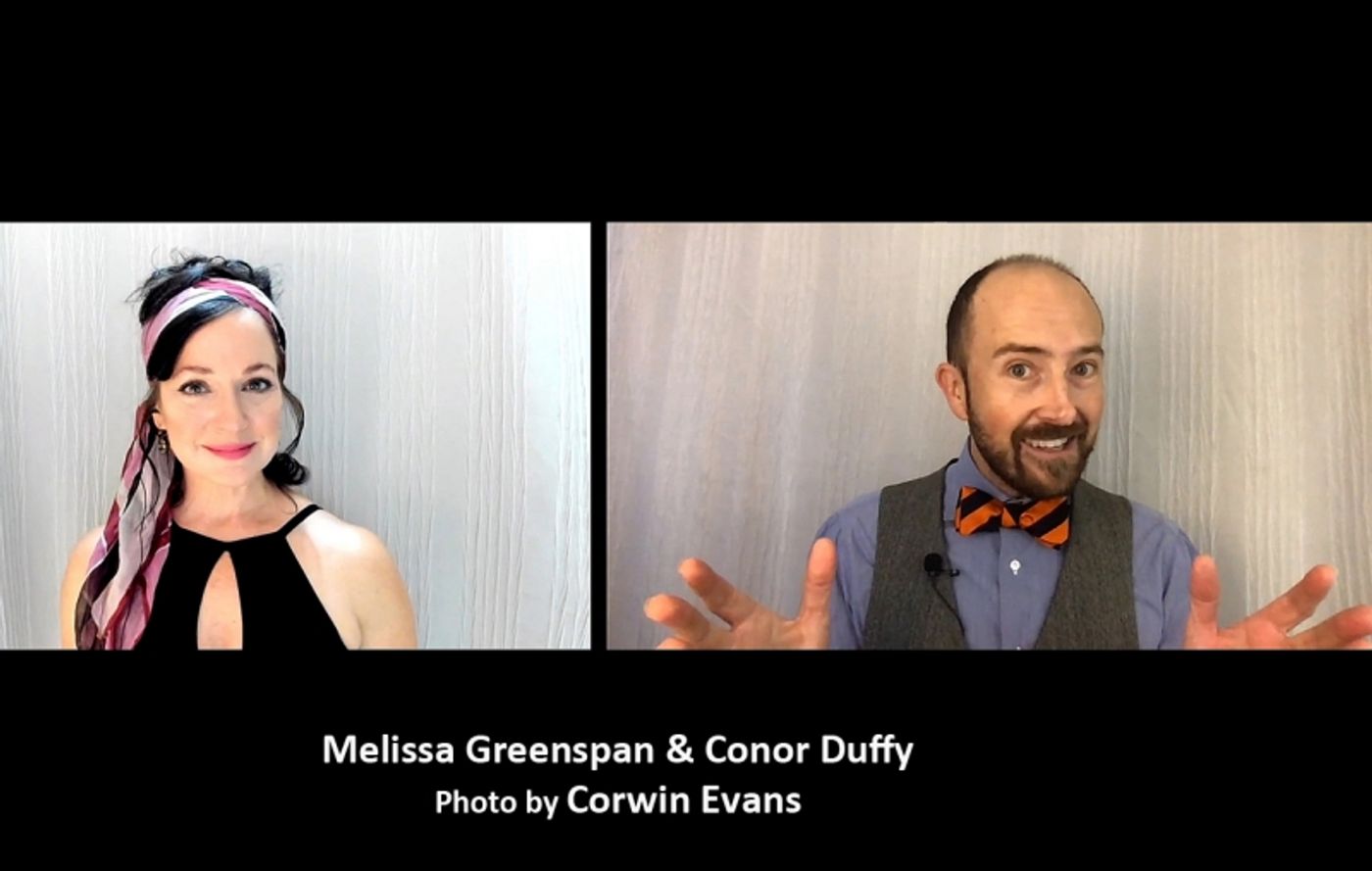 The second reason was Charlottesville 'Jews will not replace us!' but has since been replaced with the charming folks raiding the Capitol in 'Camp Auschwitz' and '6MWE' T-shirts. Those 'great people' 'on both sides' 'who are very special'. A story about two long-lost great comedians that asks what is comedy's role in times of high crisis, to smooth things over or to tear things up, feels like a good use of my time on this earth. Also, working with Conor is a bit of dream. He's dreamy. (Don't tell him I said that.)
The second reason was Charlottesville 'Jews will not replace us!' but has since been replaced with the charming folks raiding the Capitol in 'Camp Auschwitz' and '6MWE' T-shirts. Those 'great people' 'on both sides' 'who are very special'. A story about two long-lost great comedians that asks what is comedy's role in times of high crisis, to smooth things over or to tear things up, feels like a good use of my time on this earth. Also, working with Conor is a bit of dream. He's dreamy. (Don't tell him I said that.)TYPEWRITER DAYS is something I'm proud of. Set in Beirut 1982, it's about a gaggle of print journalists who cover the Lebanese civil war from the perch of a barstool at the Commodore Hotel, where they compete against the "new fangled" 24-hour news channels. It's been in development with Revolution Studios for a while, and now we have a new EP, Dan Rather. We're about to take it out, and I hope we find a buyer for it. It's a story which needs to be told, particularly right now. This is another historical story which is just pretending to be about the past. I think that might be theme with me, now that I think about it. I like to write about now, but refracted through history, so it goes down easier.
My motto: Make people have such a good time so they don't realize what a bad time they're having.Thank you again, Jake! I look forward to viewing your UNRAVELLED.
Pleasure. Please let me know what you think... this is a new play in a new kind of format... I don't know if it will be successful communication... so we'll see....
UNRAVELLED begins streaming on February 25 at 4pm PST and will be available for free viewing on demand through March 31, 2021 at www.UnRavelledPlay.com
Videos

